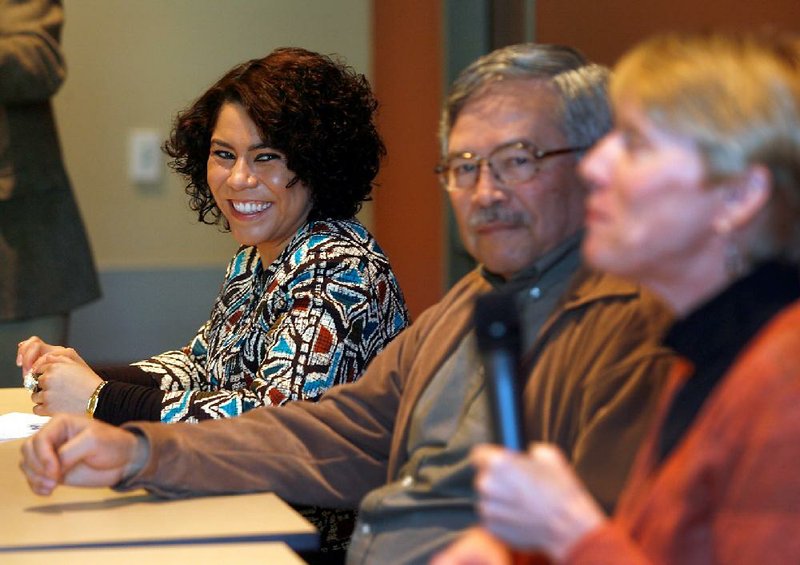FAYETTEVILLE — Differing sides of the illegal immigration debate came together on a panel Saturday in Fayetteville to discuss immigration policy and reform.
John Eves, chairman of the Arkansas chapter of the Republican National Hispanic Assembly, said it’s easy to see how legal immigration was historically good for the United States. But where people differ is on the subject of illegal immigration, he said.
“Our country was built [through] immigration, and if we try to squash it or restrict it, we suffer,” Eves said. “But we need to close the boarderthen manage illegal aliens, which is where we get into a lot of discourse.”
About 20 people attended the forum at the Fayetteville Public Library, which was hosted by theNorthwest Arkansas chapter of the American Civil Liberties Union.
Eves was joined on the panel by Mireya Reith, executive director of the Rogers-based Arkansas United Community Coalition; Susie L. Hoeller, a Bentonvillebased attorney with a background in immigration law; and Octavio Sanchez, a Bentonville businessman active in the Republican party.
Sanchez said his point of reference on the immigration debate comes from the time he spent working for a large retailer at Mexico’s border with the United States.
After he was recruited by Wal-Mart Stores Inc., it took Sanchez nine years of paperwork to become a U.S. citizen, he said.
“Everybody’s moving for the only reason - they arelooking for a better way,” he said.
Sanchez criticized the route former President Ronald Reagan took in 1986 with his administration’s immigration reform act. While the law cracked down on some aspects of illegal immigration, it also granted amnesty to illegal aliens who entered the country before 1982.
Sanchez said the result was “three-times as many” illegal aliens in the country.
Hoeller said one of theproblems with Reagan’s approach in 1986 was that Congress didn’t establish the requirement for fraudproof identification documents. Tackling illegal immigration would be easier if every person in the United States was required to carry biometrically secure identification, she said.
It would also help if more visas were granted to unskilled laborers who want to work in the United States, Hoeller said. Notonly would it cut down on the number of illegal aliens crossing the border, it would help prevent employers from undercutting U.S. workers by paying illegal aliens lower wages.
“Our laws haven’t kept up with the global reality of immigration,” she said.
Audience member Jeff Oland of Farmington said the problem stems from the government’s failure to enforce immigration laws.
Oland said some stateshave resorted to passing their own immigration laws, which is disrupting the agricultural work force in some cases. The problem wouldn’t be as great if the government had been enforcing immigration law all along.
“Maybe there’s some flaws in our law, but if we were simply to enforce the law, we wouldn’t have a lot of these financial problems,” Oland said.
To contact this reporter:
Northwest Arkansas, Pages 13 on 01/15/2012

